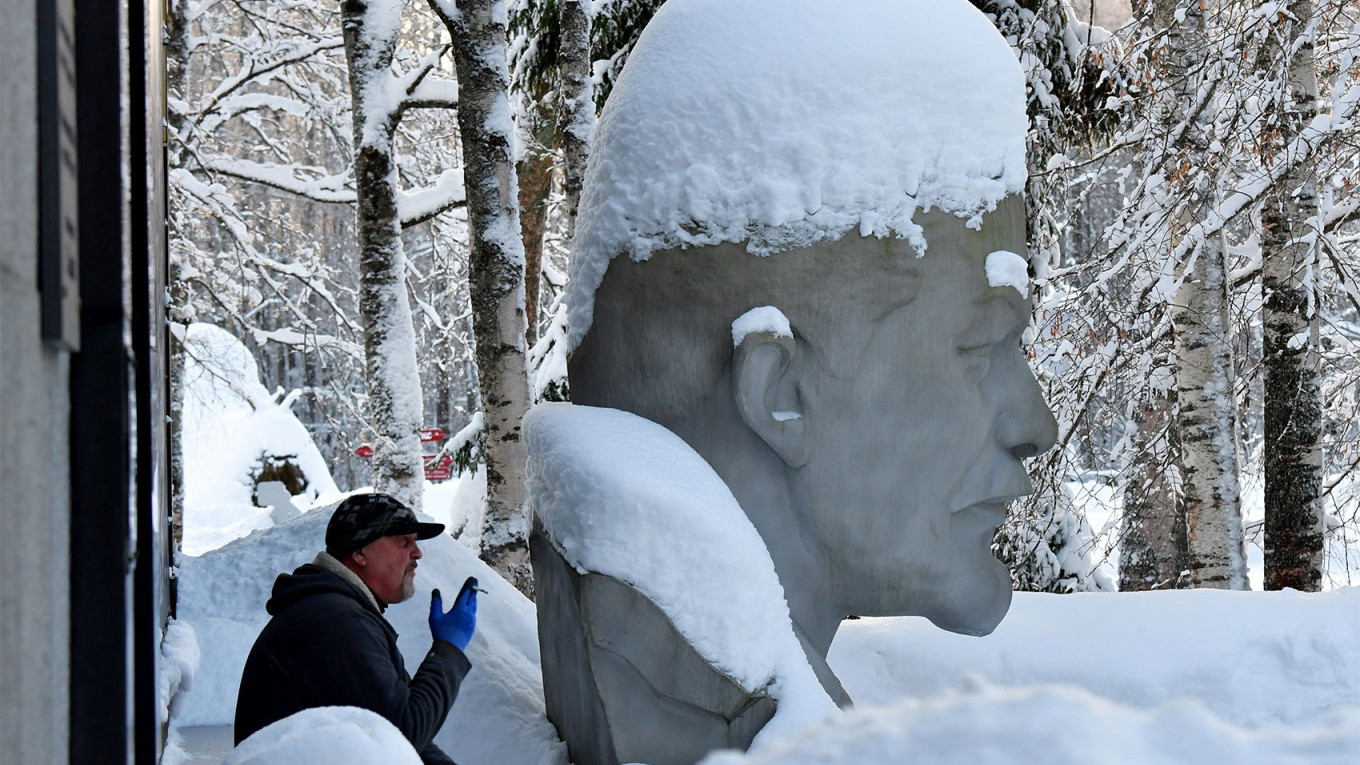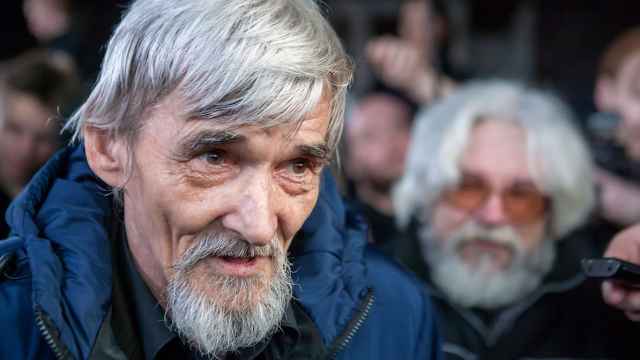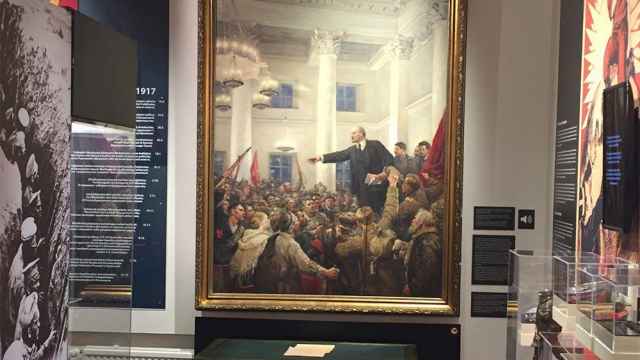There are few figures in Russian history that are as controversial as the figure of Vladimir Lenin. For some, he is a hero, a luminary of progress. Among supporters of democracy in Russia, he is seen as a symbol of totalitarianism and a direct predecessor to the modern Russian dictatorship.
He is often perceived as a symbol of the error of the Soviet experiment, which some argue should be forgotten as a tragic chapter of history. They see Lenin as the perpetrator of atrocities and the cause of the suffering of millions. But erasing such a hugely influential figure from history would be a mistake.
Since the time of Peter the Great, Russia has been closely linked to European cultural discourse. The works of Tolstoy, Chekhov and Tchaikovsky, developed naturally and harmoniously from the European cultural tradition. Russia also received scientific and philosophical concepts, including Marxism, from outside. The Russian intellectual and creative elite existed purely within the orbit of European culture, enriching but not going beyond it.
The October Revolution, which changed the course of the 20th century, was a new development. It was the most daring attempt in history to create paradise on Earth and build a new classless society. Lenin and his associates sought to implement Marxist ideas in what they believed to be Russia’s monstrously unjust society with a fanatical conviction in their rightness and unwillingness to negotiate with anyone. The Russian opposition movement behaves similarly today.
However, as we know, instead of the equality and freedom the Bolsheviks promised, a totalitarian system emerged. This was the natural result of an attempt to implement Marxist ideas in conditions that were unsuitable for a successful proletarian revolution. Although Russia was undergoing industrialization, its proletariat – the driving force of the revolution — was still very small. The workers — yesterday's peasants — largely retained peasant views of the world and social order, which were very far from the ideals of the industrial proletariat.
Obviously, it was much more difficult to build communism under such conditions, which were very different from those described by Marx. Russia had to improvise by trying to create an industrial base and proletariat, which eventually destroyed the peasantry during the collectivization of agriculture.
The Bolsheviks’ brutality and their desire to impose their vision on the country at all costs, leading to enormous losses of life, was nothing new in Russia’s history. On the contrary, Lenin and his comrades were following the old tradition of the state monopoly of power that had existed in Russia for centuries. Peter the Great, whom the great Russian poet Maximilian Voloshin aptly called “the first Bolshevik,” was similarly uncompromising in his methods of reforming Russia.
What the Bolsheviks did was raise the bar of state violence to a new height. They probably saw this as logical in light of the ruthless class struggle against reactionary social strata.
At that time, Europe tried to respond to new social challenges not from the left, as the Communists did, but by experimenting with fascism. It is not without reason that fascism draws inspiration from a fictionalized past. Adolf Hitler weaponized images of Germanic mythology and Wagnerian fantasies, while Benito Mussolini exploited the legacy of Rome. Their ideological successor, President Vladimir Putin, also constantly refers to the past, namely the victory in the Great Patriotic War, looking there for grounds to legitimize his policies.
Meanwhile, Russia sought to shake off the ashes of the old world and cut a window into the beautiful world of the future. It was truly daring and innovative, though doomed to failure. In 1917, hardly anyone foresaw what the idea of building the kingdom of God on earth would really entail.
It would be categorically wrong to erase Lenin from history by declaring the entire Soviet period to have been one big mistake.
First, for the simple reason that it is part of our history. Pretending that it has nothing to do with us is yet another symptom of the forgetfulness that has afflicted Russian society. To be ashamed of one's history is a sign of a shallow mind. Recognizing one's history and drawing lessons from it is what allows society to overcome the past and move forward. Germany, which refuses to forget the lessons of the Third Reich, can serve as a good example.
Second, Lenin is Russia's most recognizable brand. The huge number of countries affected by Lenin's legacy is an asset to Putin, allowing him to seek allies among the countries of the Global South that still have sympathy for the Soviet Union. This asset can and should be used even after Putin's departure to develop the new Russia's relations with these states. The Leninist brand and its instant recognizability can be useful tools of foreign policy and soft power regardless of who sits in the Kremlin.
It is both a reminder that nothing in politics is impossible for people united by common goals who are ready to fight for them and proof that those who believe in nothing and call on others to do nothing because "nothing will ever work" will sooner or later be shamed.
Lenin is rightly regarded as one of the greatest figures in political history because he possessed a phenomenal flair and tactical genius. He boldly changed his policies without hesitation when the old ones became irrelevant without ever losing sight of his strategic goal. This one of Lenin’s traits could be of great use to the Russian politicians of today.
Finally, the Soviet experiment is Russia's unique gift to humanity. Lenin’s legacy serves as a warning to the world about the dangers of pursuing utopian aspirations at any cost, regardless of circumstances, resources, and people's fates.
It is also a warning to all political elites. If you cling to your power and privileges, ignoring the public demand for change, change will still happen, you will have to pay for your short-sightedness. And the longer those in power resist those challenges, the more costly they will be.
A Message from The Moscow Times:
Dear readers,
We are facing unprecedented challenges. Russia's Prosecutor General's Office has designated The Moscow Times as an "undesirable" organization, criminalizing our work and putting our staff at risk of prosecution. This follows our earlier unjust labeling as a "foreign agent."
These actions are direct attempts to silence independent journalism in Russia. The authorities claim our work "discredits the decisions of the Russian leadership." We see things differently: we strive to provide accurate, unbiased reporting on Russia.
We, the journalists of The Moscow Times, refuse to be silenced. But to continue our work, we need your help.
Your support, no matter how small, makes a world of difference. If you can, please support us monthly starting from just $2. It's quick to set up, and every contribution makes a significant impact.
By supporting The Moscow Times, you're defending open, independent journalism in the face of repression. Thank you for standing with us.
Remind me later.








